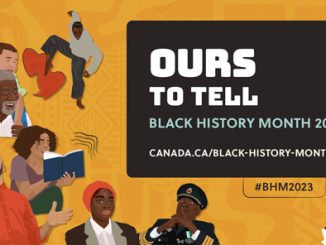The Federal, Provincial and Territorial (FPT) Forum of Ministers responsible for Immigration (FMRI) met to reflect on Canada’s immigration system. To make progress on Canada’s Vision Action Plan for 2016-2019, all Ministers agreed to work in partnership to ensure a fast, flexible, and efficient economic immigration system; strategic immigration levels planning; and effective settlement and integration supports for newcomers. This work will further Canada’s legacy as a diverse, inclusive and welcoming country.
Ministers highlighted the critical importance of a pan-Canadian approach to dealing with the current influx of asylum seekers, including enhanced intergovernmental collaboration to support orderly migration and scenarios planning, while protecting Canada’s border and the safety and security of Canadians. Given the growing influx of asylum seekers to Canada, Ministers articulated that, while Canada is an open and welcoming country, people must use the proper channels to come to Canada and could face significant risks entering Canada through irregular means. While anyone who claims asylum in Canada has the right to due process, Ministers stressed that there are no guarantees that an asylum seeker will be allowed to stay in Canada at the end of that process.
Ministers reached consensus on the importance of multi-year levels planning and increasing immigration levels to help meet Canada’s labour market needs, address demographic changes, and generate long-term economic growth. “We continue to help newcomers find jobs and make lasting connections within their communities,” Minister of Immigration, Refugees and Citizenship Ahmed Hussen said. A multi-year approach to levels planning would provide increased certainty and help inform long-term planning. Ministers reiterated support for Canada’s international obligations and humanitarian tradition with respect to refugees.
Enhanced collaboration across governments is needed to support the delivery of high-quality settlement services and successful outcomes for all newcomers. To this end, Ministers agreed to strengthen partnerships and explore new models for collaboration. It was agreed that an important piece of this work will be the development of a federal-provincial-territorial plan to clarify how settlement priorities are set, and how information is shared among all orders of government.
Ministers also discussed issues related to the federal Excessive Demand policy, and committed to continue the dialogue so that the policy continues to recognize the need to protect health, education and social services, while treating applicants fairly.
Ministers discussed the promotion of Francophone immigration to communities outside of Québec with the goal of increasing Francophone immigration. Building on the momentum that was established in Moncton earlier this year, Ministers look forward to meeting with Francophonie ministers in 2018 in Ontario to assess progress.
Federal Government Outreach to US Hispanic Community:
The Canadian government has begun extending its outreach to the Latino community in the United States. CBC reports Central Americans are likely to be the next group to attempt the trip across the border with Canada.
Quebec MP Pablo Rodriguez was scheduled to make a trip to Los Angeles earlier this month. It was in response to a piece in a Spanish-language publication reporting that the Canadian government would grant Hondurans living in the United States temporary protected status. According to the CBC, it never happened. The piece was similar to one circulating in Creole language publications.
Rodriguez was born in Argentina, and speaks Spanish. “I’ll be able to communicate with them and tell them exactly how things are in Canada,” he told the CBC.
Emmanuel Dubourg made a similar trip to Miami to speak with the Haitian community.




Be the first to comment